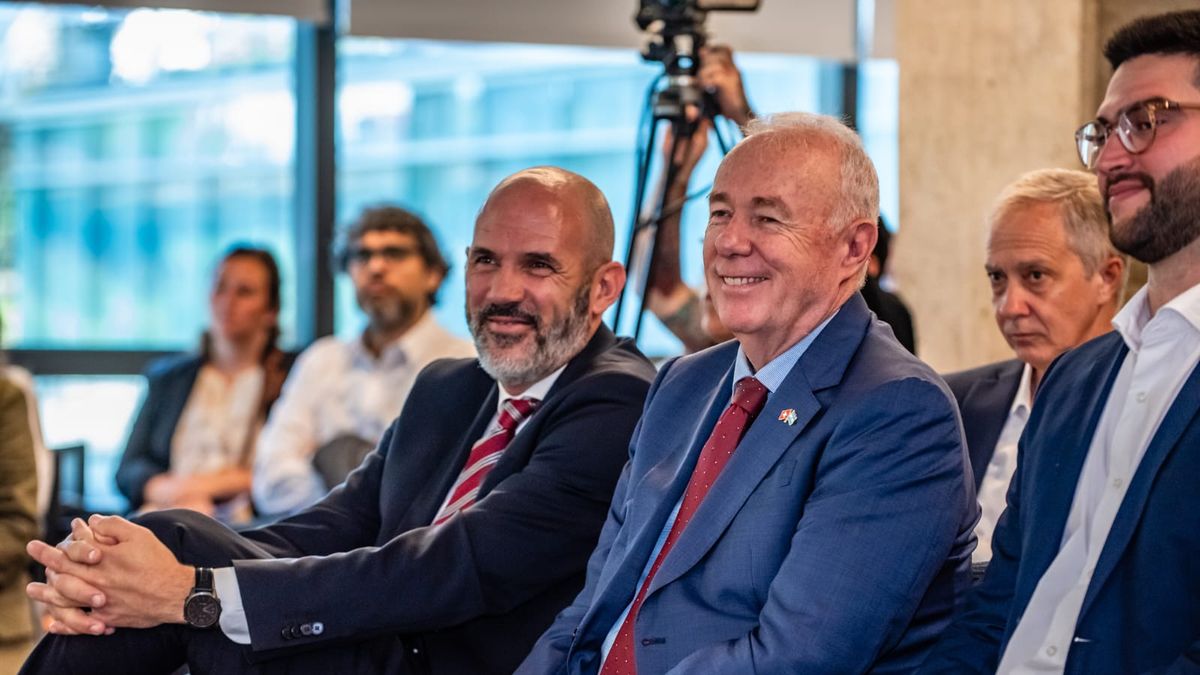The conference, organized by the Swiss-Argentine Chamber of Commerce (CCSA) and the Siglo 21 University, focused on the circular economy and the transformative power of working together with other actors and thus achieving a greater impact.
With more than 500 participants, both in person and virtual, a new edition of EcoSuizathe Swiss-Argentine exchange platform created in 2011. This year’s edition It was focused on highlighting Swiss synergies in Argentina and the key role involved in forging alliances between companies, civil society organizations and the public sector to achieve a sustainable future.
The content you want to access is exclusive to subscribers.
The event, organized by the Swiss Argentine Chamber of Commerce (CCSA) in conjunction with the Siglo 21 University and the sponsorship of the Swiss Embassy in our country, It was broadcast on YouTube and brought together Swiss companies with a presence in Argentina, university students, environmental experts and NGOs.


“Switzerland, as a country and through its companies, has always been at the forefront of sustainability issues, which is why it is a pride to share what the companies of our Chamber in Argentina are doing with this objective”said Fernando Bekes, president of the CCSA, at the opening of the day, held at the headquarters of the Siglo 21 University of Vicente López.
The Swiss ambassador to Argentina, Hans Rüedi Bortishighlighted the role of EcoSuiza. “Some time ago, sustainability was marketing for companies to increase the value of their business or stock market listing. Today it is an imperative need and that is the objective of this meeting. It is important that all actors articulate together,” held. Rodrigo Tenuta, president of the Environment and Sustainability Committee of the CCSA, also highlighted the valuable contribution of collective work.
The alliances established in pursuit of the energy transition, the circular economy, habitat conservation and social inclusion were the central axes of the panels. There was an exhibition of Argentine Business Council for Sustainable Development (CEADS) focused on the goals and progress of the Sustainable Development Goals (SDG) established in the 2030 Agenda and then Swiss companies based in Argentina and civil organizations shared their practices and concrete experiences, with the public intervening by asking questions.
In the first panel, ABB shared the case of the promotion of electric mobility in the Uruguay Green Corridor, highlighting the collaboration with the union sector to achieve progress, while Roche mentioned the alliance established with Schneider Electric to use renewable energy at all the company’s sites. Then followed the circular economy panel, where the case of Luminox and its alliance to manufacture the first watches with materials 100% recycled from plastic waste from the oceans was presented, while Nestlé commented on its policy of recovering packaging from the market, also establishing alliances with other actors.
In the panel dedicated to the care of the habitat and social development, the company Holcim shared its case of corporate volunteering for the reforestation of native species, while Zurich and Fundación Vida Silvestre commented on the successful results of their alliance for the conservation of the Urugua-í Wildlife Reserve, located in Misiones. In the last block, Sika and Roche told how they contribute to social inclusion. Sika, in alliance with the SOS Children’s Villages organization, promotes regional volunteering to improve the infrastructure of houses that shelter children, while Roche does so by promoting the agroecological garden and community market project in the Ricardo Rojas neighborhood, Tigre, with local producers and participation of neighbors, in conjunction with the NGO Voluntario Global.
Source: Ambito




